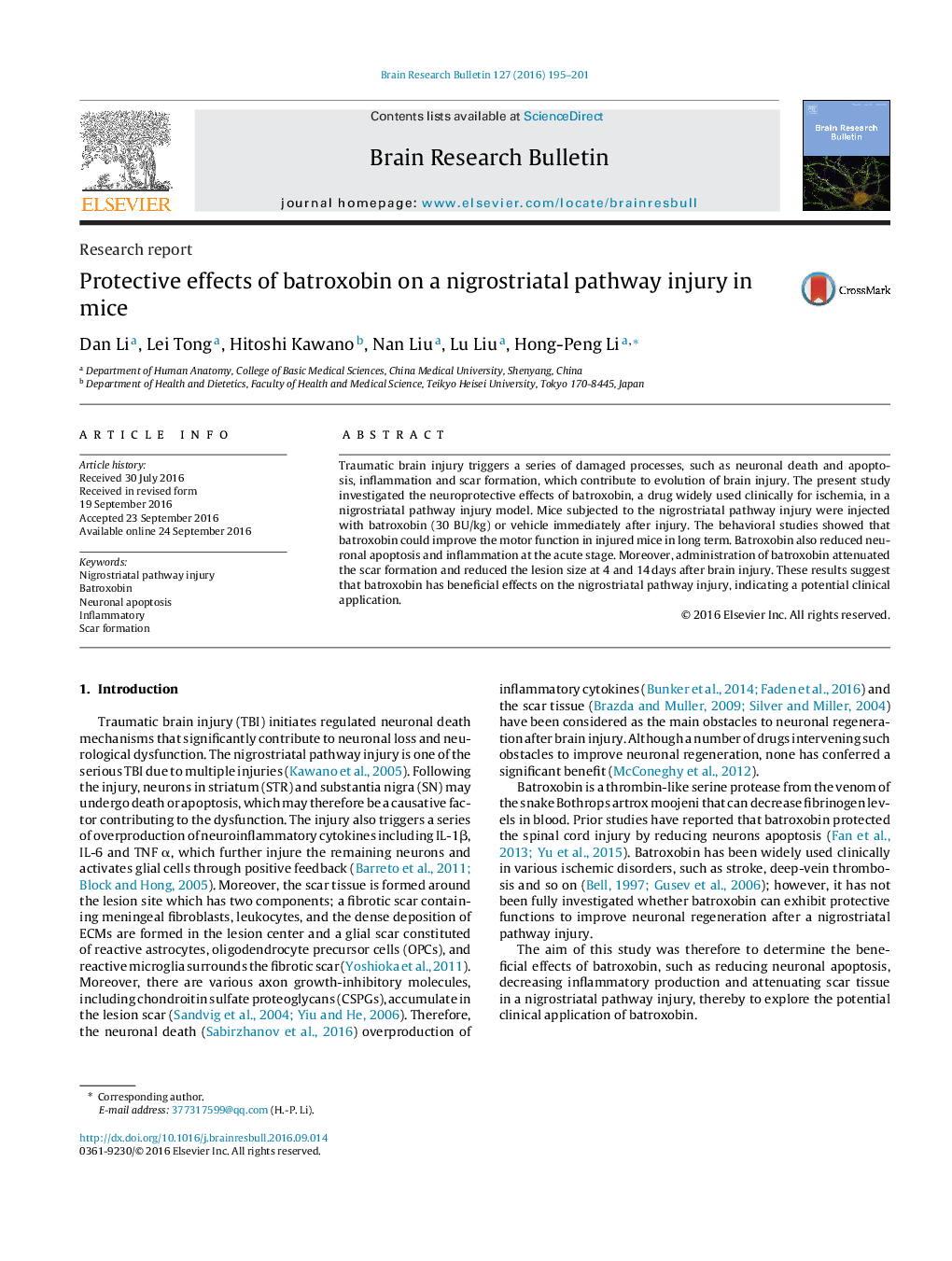| Article ID | Journal | Published Year | Pages | File Type |
|---|---|---|---|---|
| 4318592 | Brain Research Bulletin | 2016 | 7 Pages |
•Batroxobin improved long-term neurobravioral function after a nigrostriatal pathway injury.•Batroxobin decreased the neuronal apoptosis induced by brain injury.•Batroxobin reduced the overproduction of inflammation after injury.•Batroxobin attenuated the scar formation in the lesion site after brain injury.
Traumatic brain injury triggers a series of damaged processes, such as neuronal death and apoptosis, inflammation and scar formation, which contribute to evolution of brain injury. The present study investigated the neuroprotective effects of batroxobin, a drug widely used clinically for ischemia, in a nigrostriatal pathway injury model. Mice subjected to the nigrostriatal pathway injury were injected with batroxobin (30 BU/kg) or vehicle immediately after injury. The behavioral studies showed that batroxobin could improve the motor function in injured mice in long term. Batroxobin also reduced neuronal apoptosis and inflammation at the acute stage. Moreover, administration of batroxobin attenuated the scar formation and reduced the lesion size at 4 and 14 days after brain injury. These results suggest that batroxobin has beneficial effects on the nigrostriatal pathway injury, indicating a potential clinical application.
